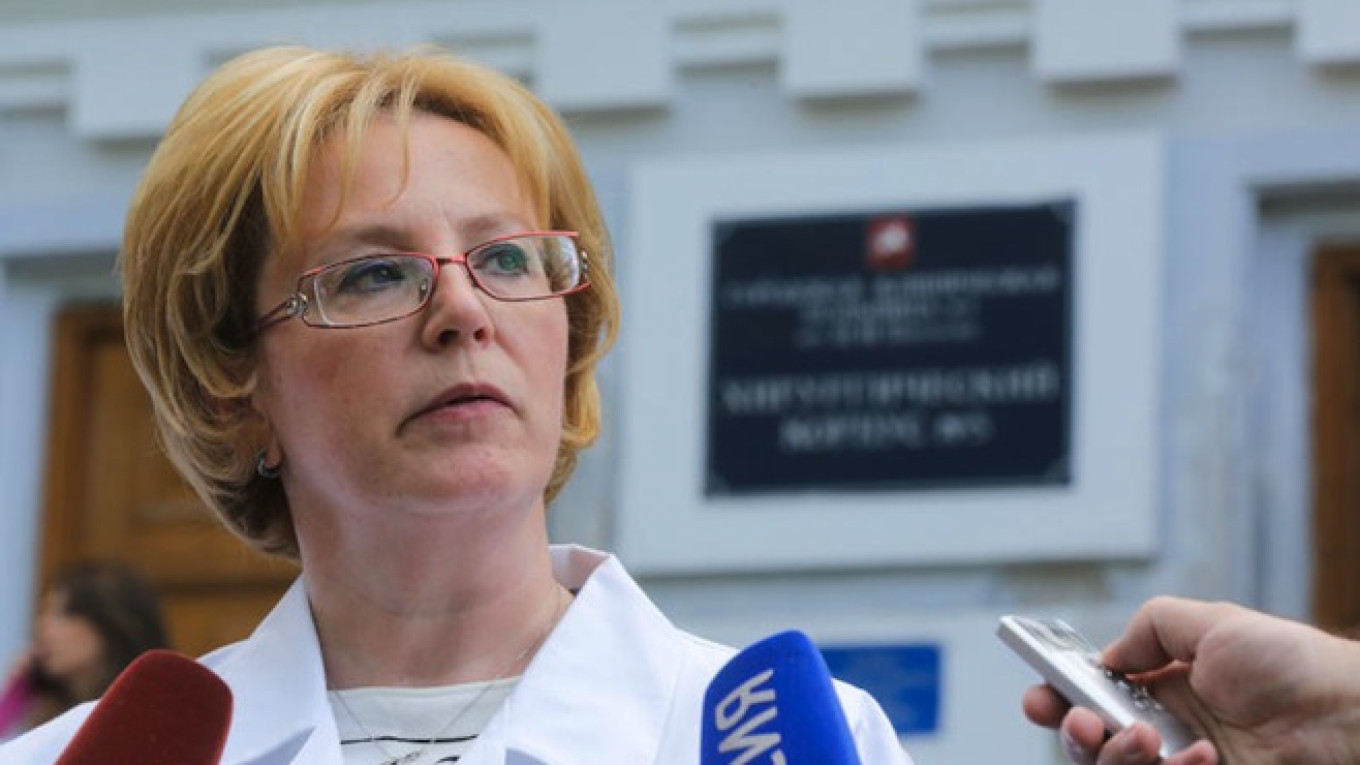Russia's HIV epidemic could spiral out of control by the end of the decade if treatment for the life-threatening virus is not expanded, the nation's health minister warned Friday, the TASS news agency reported.
Proclaimed government support in Russia for controlling HIV's spread and treating those infected is notoriously ineffective.
According to Health Minister Veronika Skvortsova, current levels of funding for HIV treatment will only provide care for 200,000 people, or 23 percent of Russia's HIV-positive population, but declining drug prices will allow 25-30 percent of those infected to receive treatments.
Without funding increases, Skvortsova warned that a scenario could develop in which “by 2020 the number of patients in the HIV-AIDS epidemic could increase by 250 percent. That is, the epidemic will develop and spiral out of control.”
Skvortsova estimated that funding for HIV and AIDS drug therapies should be increased to cover 60 to 80 percent of the infected population, which official figures place around 900,000 — up from around 500,000 in 2010 — though those statistics may be lowballed, The Guardian reported in May.
According to Skvortsova, over 92,000 people contracted HIV in 2014, a 12% increase in the number of new infections seen in 2013, news website Lenta.ru reported. Prime Minister Dmitry Medvedev was quoted by TASS as saying supplies of drugs to certain regions should be increased.
But drug treatments do not cure the HIV virus, and Russia has not adopted internationally recognized measures that limit the spread of the virus — which is particularly driven by users of needle-injected drugs, who often lack access to clean needles.
Despite 60 percent of HIV-positive Russians identified to be drug users, or the sexual partners of drug users, Russia has banned the World Health Organization's clean needle program — which has been credited with stopping the spread of HIV among drug users in other nations, The Guardian reported.
Contact the author at [email protected]
A Message from The Moscow Times:
Dear readers,
We are facing unprecedented challenges. Russia's Prosecutor General's Office has designated The Moscow Times as an "undesirable" organization, criminalizing our work and putting our staff at risk of prosecution. This follows our earlier unjust labeling as a "foreign agent."
These actions are direct attempts to silence independent journalism in Russia. The authorities claim our work "discredits the decisions of the Russian leadership." We see things differently: we strive to provide accurate, unbiased reporting on Russia.
We, the journalists of The Moscow Times, refuse to be silenced. But to continue our work, we need your help.
Your support, no matter how small, makes a world of difference. If you can, please support us monthly starting from just $2. It's quick to set up, and every contribution makes a significant impact.
By supporting The Moscow Times, you're defending open, independent journalism in the face of repression. Thank you for standing with us.
Remind me later.


